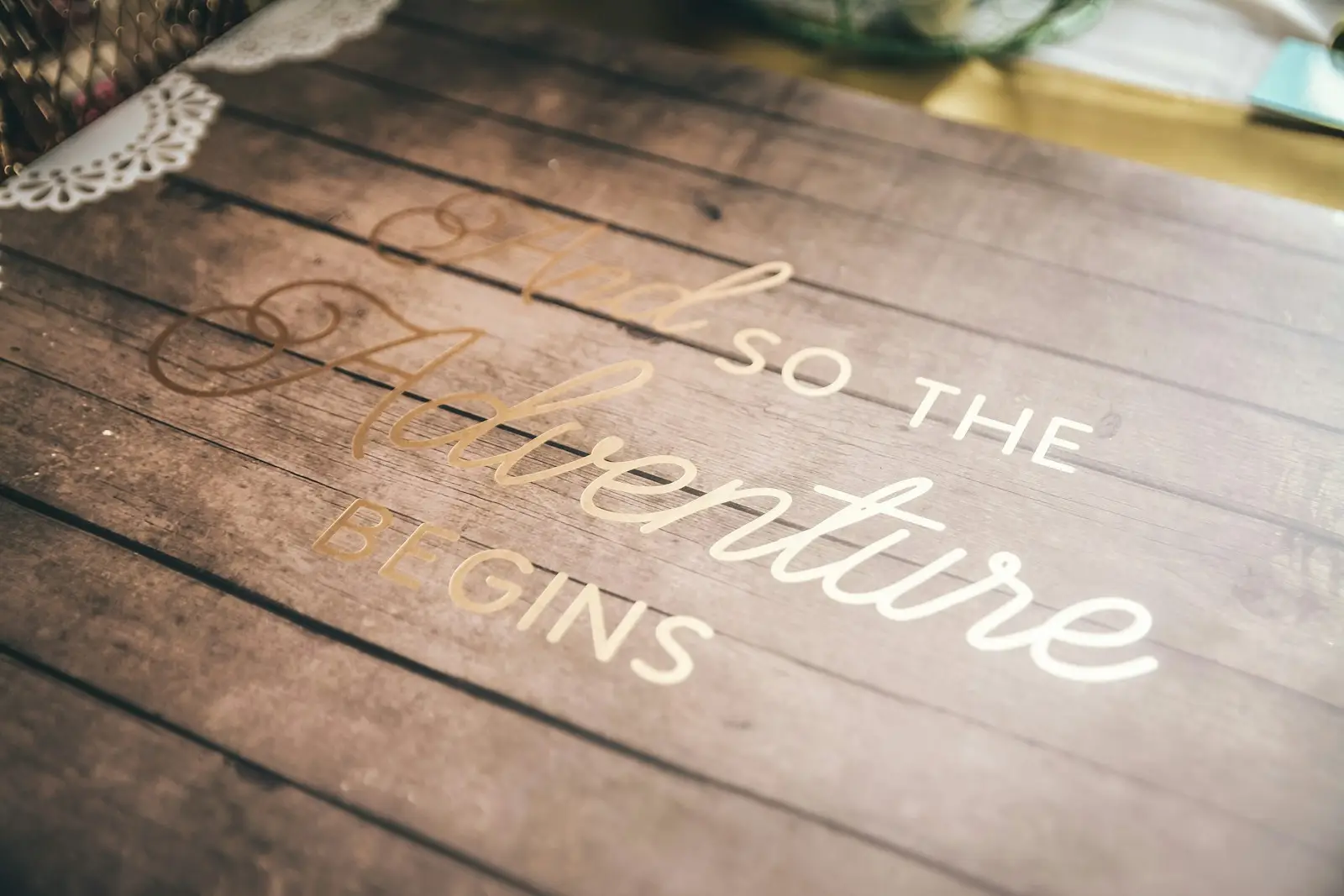Breakups are among the most painful experiences in life. The package includes heartache, all over the place emotions, a roller-coaster of feelings, and lost plans and dreams. Add to this mix logistical issues such as dealing with leases, mortgages, bank accounts, credit cards and, in many situations, children. It’s no wonder people feel so deflated when a relationship ends.
But there’s also a flip side to a breakup in the form of a silver lining. True, thinking about silver linings when your heart is ripped out is not the first thing that comes to mind. However, there is another reality – you CAN have a great life after a break-up. Yes, a breakup can lead to tremendous growth and self-discovery, which can translate into good times ahead.
So, if you’re going through a breakup right now, know that things can and will settle down. Although it’s a process with no set timeline or a magic bullet to skip through the grief, there are still things you can do to mitigate a breakup’s pain.
Read on to see how this challenging time can be a catalyst for a more complete and better version of yourself. Let’s explore six crucial truths about having a great life after a break-up.

Breakups Don’t Have to be the End of the World – There is Life After a Break-Up
When things go south, and a breakup is staring you straight in the eyes, it’s perfectly reasonable to feel like your world is crumbling. Breakups can shake the very foundation of your life, leaving you wondering how you’ll ever piece it all back together. This upheaval, as painful as it may be, is also a perfect opportunity for self-reflection and carving a new path to having a great life after a break-up.
In every challenge or setback, there are also seeds of potential. When life goes sideways, we have the choice to sink or swim. Sure, it’s easier to sit back and hope things will get better on their own. However, I wouldn’t put any money on this option bringing about any meaningful change for you. Instead, consider how the lessons from a breakup may be beneficial.
Finding the motivation to do the things that need to be done takes a special kind of grit that will lead to uncovering strengths you never knew you had. This is because the pain and confusion of a breakup can prompt you to reevaluate your priorities, get to know who you are outside of the relationship, and refine what is most meaningful to you.
Here’s the point: embracing the struggle of a breakup doesn’t mean denying the pain. But it does mean recognizing that there’s a chance to develop new skills, gain resilience, and come out stronger from the setbacks.
Moving beyond a breakup isn’t just about surviving; it’s about thriving. It’s also about using this experience as a springboard to become a more resilient, empowered version of yourself. A breakup is not the end of the road; it’s a detour that can open the door to new opportunities, relationships, and personal achievements you might never have considered.
Think of recovering from a breakup as beginning the NEXT CHAPTER in your story—a chapter that is a lot more interesting than the previous one. Your challenge now is to turn those obstacles into stepping stones and apply the lessons from a breakup.
Reflecting (Not Ruminating) on What Went Wrong and How You Can Improve for a Good Life After a Break-Up
Reflecting on what happened is essential to starting the recovery process from a breakup. The pain you are experiencing may also serve the purpose of forcing you to look more honestly at the relationship and your role in it. The point is that by learning from your experience, you may also reach the place where you now understand that the pain you are experiencing actually serves a purpose.
For example, some of the things you may realize upon reflection include: perhaps you could have communicated more effectively with your partner, spoken up when something bothered you, or paid more attention to your relationship.
Whatever the case may be, now is the time to think about what and when things started going off the rails, the role you played in it, the red flags you ignored, and how you can do things differently in the future. Maybe you’ll recognize a tendency to avoid conflict or to prioritize your partner’s needs at the expense of your own. Or perhaps you’ll see that you rushed into things without truly getting to know the other person, or yourself.
These insights aren’t about blame—they’re about growth and moving forward to having a better life after a break-up. With greater self-awareness, you can begin building healthier patterns: learning to set clear boundaries, choosing partners who align with your values, or developing emotional regulation skills to navigate difficult conversations with more grace and honesty.
Here are some of the changes you can consider making in crafting your life after a break-up:
- being more intentional with your time and energy
- feeling more confident in expressing your needs
- being more selective about the kind of love you want in your life
The pain of the past doesn’t have to define your future—instead, it can shape a stronger, wiser version of you, one that’s ready to create a life after a break-up that’s genuinely fulfilling.
To recap, making long-lasting changes doesn’t happen overnight. Doing things differently is also a process. Reflecting on what went wrong is not about beating yourself up or replaying your relationship on an endless loop. Neither is helpful nor healthy. Instead, use your reflections as a roadmap to guide you toward your life after a breakup.

Surrounding Yourself with Positive Vibes and Supportive Friends is an Important Step Toward Life After a Break-Up
In 1967, the Beatles released a song with the famous lyrics, “I get by with a little help from my friends.” The message relayed by these lyrics is that having a support system can make all the difference when times get tough. Interestingly, the lyrics also acknowledge that struggling is a common part of life. Perhaps when the Beatles wrote this song, they considered what people needed when trying to rebuild their lives after a breakup.
Life is much better when you have a friend or two to support you and share their positive vibes with you. Being around positive people is contagious because their optimism, caring, and empathy are bound to rub off on you. After all, it’s hard to ignore positive energy, and for this reason, surrounding yourself with supportive people is beneficial to your mental health and happiness.
But before you decide to reach out to others, first take a hard look at the people in your life. There’s no point in seeking support from individuals who bring you down by being judgmental, critical, or pessimistic. These types of people won’t serve you well. Instead, seek out friends and family who genuinely care about you and are also a pleasure to be around.
On that note, don’t be afraid to set boundaries in toxic friendships. You have enough on your plate already, and you don’t need to be around people who sap your energy. Dealing with others’ negativity, manipulations, or constant neediness won’t do you any good now, or in the future.
Instead, pay attention to how you feel after interacting with certain friends—do you feel drained, judged, or worse about yourself? If so, that’s a signal to reevaluate the relationship. You’re allowed to say no to last-minute plans, ignore unsolicited advice, or take space from people who bring more chaos than calm. Boundaries can be as simple as limiting how much time you spend with someone, avoiding specific topics of conversation, or even muting or unfollowing them on social media while you heal.
Communicating your boundaries doesn’t mean you’re being mean or selfish—it means you’re taking care of yourself, and that’s something you owe yourself. You can say something like, “I really need to focus on my healing right now, and I’m pulling back from anything that feels emotionally heavy.” The right people will understand and not take offense.
And if someone doesn’t respect your boundaries, that’s a clear indication they may not have your best interests at heart. Instead, lean into relationships that feel reciprocal, grounding, and encouraging. Connect with like-minded people who share your values and goals—those who uplift you, listen without judgment, and remind you of your worth. These are the people who will help you rebuild a better, more fulfilling life after a break-up.

Embrace Single Life and Redefine Who You Are as You Move Toward a Life After a Break-Up
Being single again can be a bit intimidating at first, especially when you’re in the early throes of a breakup. But as time goes on, you may find being single can actually be liberating. This may be especially true if you’re coming out of a long-term relationship. The upside of being single again is that it offers you a new start where you alone call the shots and figure things out on your terms.
One issue facing many people is worrying about if they can be happy after a breakup. That’s because some individuals get caught up in thinking they need to be in a relationship to feel fulfilled. Perhaps it’s insecurity or simply a fear of what to do after a breakup to rebuild.
Adding to these concerns are the many ways society reinforces the idea that people are somehow incomplete, unhappy, or unsuccessful if they’re not in a relationship. The messages are conveyed both subtly and overtly, and they weigh heavily on those who already wonder if they can have a life after a breakup. Let’s get into this a bit now.
Society and How It Reinforces the Belief that People Can’t Have a Life After a Break-up
Society’s message about relationships can be found in the fairy tales we were read to as children, movies, TV shows, songs, and even in advertising. Think about it – since childhood, we’ve been exposed to the recurring theme: you meet “the one,” fall in love, and live happily ever after. Here are several examples of song titles that were popular in recent years:
- “Nothing Without You” – Tenille Arts
- “We Belong Together” – Mariah Carey
- “You’re the Inspiration” – Chicago
- “Because You Loved Me” – Celine Dion
- “Let’s Stay Together” – Al Green
- “You’re Still the One* – Shania Twain
Historically, singleness is rarely celebrated or even acknowledged as a viable option in any of these narratives. Instead, being single is portrayed as a temporary or even unfortunate phase in life. This cultural script can make people feel like they’re “less” of a person if they’re not in a relationship. It makes worrying that there can’t be a life after a breakup more real.
Social norms and expectations reinforce this pressure in another way—questions like “Are you seeing anyone?” or “When are you going to settle down?” These imply that being single is a temporary state to be fixed. Social media adds fuel to the fire, often showcasing carefully curated highlight reels of happy couples, engagements, and anniversaries, while glossing over the reality that relationships, like singleness, come with their own struggles. Over time, these messages can have a profound influence on how people view themselves, making it harder to recognize their own value and completeness outside of a romantic relationship.
The list goes on, but you get my drift. Believing that being in a relationship is the only way to be happy and feel whole is simply untrue. The reality is that being single is an excellent opportunity to focus on yourself, discover new interests, and redefine what makes you happy.
Society is Finally Getting the Message That You Don’t Have to be in a Relationship to Have a Good Life After a Break-up
The good news is that society is starting to recognize that being single is a choice and not a consequence. Here are some examples of what I am referring to:
- Shows like “Sex and the City,” “The Mindy Project,” “The Golden Girls”, “The Mary Tyler Moore Show”, and “Insecure”
- Books like “Spinster: Making a Life of One’s Own” by Kate Bolick and “All the Single Ladies: Unmarried Women and the Rise of an Independent Nation” by Rebecca Traister
- Social Media Platforms that use hashtags like #SingleLife and #SoloLiving
- Songs like Lizzo’s “Good as Hell” and Beyoncé’s “Single Ladies”
- Travel companies that offer solo travel packages for cruises, bus tours, or hiking or biking trips
The bottom line is that a person’s worth is not defined by whether or not you’re in a romantic relationship. How you define yourself should be independent of having a partner. Being single for many is a matter of choice, not the result of a failure or flaw. And although it may not have been your choice to end your relationship, you now have the chance to explore the things you enjoy and prefer, as you begin your life after a break-up.
Wrapping Up Life After a Break-Up
Breakups can be incredibly challenging, shaking your sense of stability and forcing you to confront uncomfortable emotions. At the same time, they can also be a powerful catalyst for growth, self-discovery, and long-overdue transformation.
In the aftermath of your ended relationship, you have a rare opportunity to rebuild your life on your terms – a much better life after a break-up. This is the time when you get to ask yourself: who you are outside of the relationship, what you genuinely want moving forward, and how you can become a more authentic, fulfilled, and larger version of yourself.
Getting over a breakup takes time, compassion, and a whole lot of patience. The healing process after a breakup isn’t a linear process. There will be moments when it feels like you’re taking two steps back for every one step forward. That’s okay and almost expected.
Compare recovering from a breakup to learning new dance moves. Rarely do you get them perfect the first go-round. In fact, for most people, it takes several practice runs before they feel confident enough to test them out on a dance floor. And since your goal is to have a good life after a break-up, it will also include some frustration along the way.
What matters is that you keep showing up for yourself by not giving up. Turn the pain into purpose. Use the lessons of the past to make better choices, nurture stronger boundaries, and build a life that feels meaningful and aligned with who you really are.
I’m not just cheerleading here—this is real talk. It works. You have everything it takes to rise from this experience stronger, wiser, and more grounded than ever. Your new chapter doesn’t start when you meet someone new—it begins the moment you decide you’re worth the effort. And with that, remember that your life after a break-up does not ride on you being in a relationship; that’s a choice for you to make, if and when the time is right.


